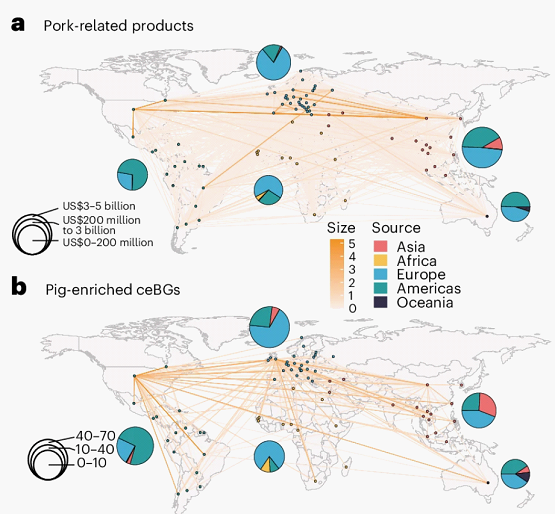
On May 9th, a research team led by Professor Zhou Zhemin from Suzhou Medical School of Soochow University published their findings titled "Centralized industrialization of pork in Europe and America contributes to the global spread of Salmonella enterica" in the international journal Nature Food (IF=23.2).
The research team downloaded a total of 362,931 Salmonella enterica strains from the EnteroBase database, identifying nine Salmonella enterica populations with pigs as the primary host, encompassing over 9,000 genomes. By analyzing the evolutionary patterns and cross-species transmission of these Salmonella populations, the team discovered that most Salmonella strains entered pig hosts after the 20th century, exhibiting rapid population expansion, international transmission, and increased antibiotic resistance. The key evolutionary events were closely associated with the development of industrial modernization and antibiotic use.
The study revealed that in recent years, human infection outbreaks caused by pork contamination have become more frequent. After comparing the data with global trade over the past 50 years, the team found that the trade of pork and related products, as well as the frequent use of pig-derived feed, may be important driving factors for the spread of these Salmonella strains. This research demonstrates that agricultural modernization and globalization have profoundly influenced the emergence, population expansion, acquisition of bacterial resistance genes, and global transmission of pig-derived Salmonella.


Paper Link: https://www.nature.com/articles/s43016-024-00968-1
